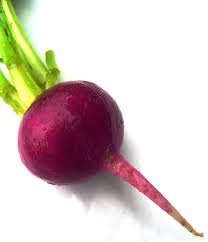Beets Are Good For The Brain
 Monday, November 8, 2010 at 6:44AM
Monday, November 8, 2010 at 6:44AM  A new study suggests that a daily dose of beet juice boosts blood flow to the brain, keeping your mind sharp and potentially creating a safeguard against dementia as you age.
A new study suggests that a daily dose of beet juice boosts blood flow to the brain, keeping your mind sharp and potentially creating a safeguard against dementia as you age.
Researchers with Wake Forest University's Translational Science Center; Fostering Independence in Aging took a closer look at beet juice because it is rich in nitrate. The body turns nitrate into nitrite, which helps to open up blood vessels and improve blood flow.
"One of the great things about nitrite is that it seems to head straight for the places that need more oxygen supplied by increased blood flow," said Gary Miller, associate professor in Wake Forest University's Department of Health and Exercise Science and one of the senior investigators on the project. "I think these results are consistent and encouraging - that good diet consisting of a lot of fruits and vegetables can contribute to overall good health."
This study builds on previous research showing that a diet that includes beets and other nitrate-rich foods can lower blood pressure and improve exercise performance. But this is the first to look at how beets might affect the brain.
"There are areas in the brain that become poorly perfused as you age, and that's believed to be associated with dementia and poor cognition," said Daniel Kim-Shapiro, director of Wake Forest University's Translational Science Center; Fostering Independence in Aging.
High concentrations of nitrates are found in beets, as well as in celery, cabbage and other leafy green vegetables like spinach and some lettuce.
The research findings are available online in Nitric Oxide: Biology and Chemistry, the peer-reviewed journal of the Nitric Oxide Society and will be available in print soon. The National Institutes of Health contributed funding for this research.

Reader Comments